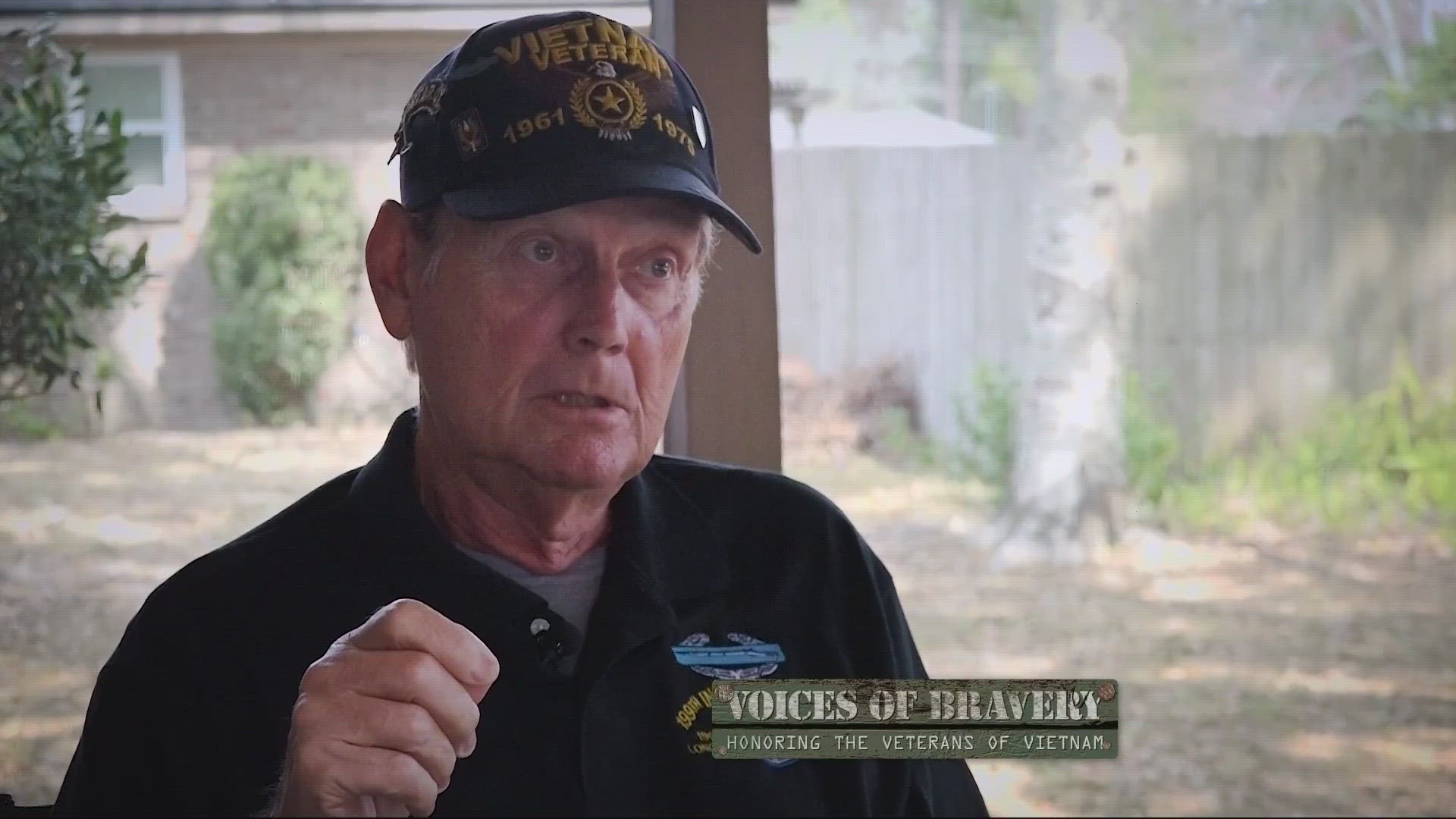JACKSONVILLE, Fla. — Agent Orange was used by the United States to deforest, defoliate and kill as much vegetation as possible to take away the ambush hiding spots of the Viet Cong.
Soldiers sprayed it from river boats and dropped it on forests from the sky.
And no one could hide from it.
Tony Mann’s raspy voice tells a piece of his Vietnam story and likely will for the rest of his life, having suffered throat injuries from exposure to the omnipresent chemical.
“They go down and clean up and check the esophagus, make sure there’s no cancer," Tony says of his frequent trips to the VA. "They burn off the cells, send em in and find out what the status is.”
Despite his health struggles, Tony says he was honored to serve in Vietnam.
“I joined the service to serve my country and I served it very proudly.”
He enlisted in the US Army, knowing he’d be sent overseas. Tony was assigned to the 199th Infantry Brigade and became a specialist, handling artillery known as the four-deuce.
“We were the best that the government ever had till this day we’re still best that the government ever had.”
They were patrolling a perimeter around Saigon, which meant long marches through jungle and swamps.
All while clouds of gun smoke and chemicals fell from the sky, exposing some 3 million US troops to Agent Orange.
“If you’re in water, you’re walking around absorbing Agent Orange,” he said.
Dr. Mike Butler, a Vietnam War historian and professor at Flagler College, weighed in.
“I think one of the consequences of the vast amount of Agent Orange used is that now it would be a war crime,” said Butler.
Of course, it wasn’t just US soldiers exposed to the chemical. There were countless cases of cancer and extreme birth defects that plagued the Vietnamese as well
“The long term impact of exposure to Agent Orange has been cancer, birth defects, variety of health related elements that only recently the VA has acknowledged,” Butler said.
“Do I have friends that are still alive? No, not that many. One that I know of,” and Mann says that's eaten at him.
Three times while in Vietnam he says he had gun in hand, ready to commit suicide.
“The first time was after I took somebody out, the second time was when a buddy died, and a third time was when I lost five men.”
Haunting memories he continues to live with coupled with physical scars and constant medical treatment from a war he still fights internally.
“It changed my life, for the rest of my life.”

